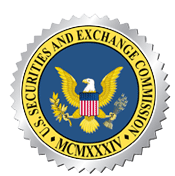 by Michael Tarsala
by Michael Tarsala
You almost can’t blame the hedge funds for asking for an early heads-up to Wall Street analyst recommendation changes.
That doesn’t mean that any of the Wall Street banks should oblige. After all, isn’t their research supposed to be for all the banks’ customers?
Yet many banks appear to have given hedge funds an early look at analysts’ opinion, according to Gretchen Morgenson’s latest column at the New York Times.
She reports that Citigroup (C), Credit Suisse (CS), Deutsche Bank (DB), Goldman Sachs (GS), JP Morgan Chase (JPM), Merrill Lynch (BAC) and UBS (UBS) all have responded to questionnaires polling analysts’ changing views on stocks.
Morgenson also revealed internal documents that show the goal of such surveys — at least the ones from BlackRock — is to “front-run” analyst recommendations, acting on them before the general public ever gets the chance.
Some may say that analyst recommendations don’t matter, anyway, because analysts are wrong so often.
I disagree: Their sentiment can of often right, especially in the aggregate. There’s usually a reason why a group of them suddenly starts to feel more optimistic or pessimistic about a particular stock.
Hedge funds know that.
They also know that some analysts have a much better track record than others. It would be easy to poll the ones that tend to have the best long-term track record for each individual stock, or to give those analysts’ opinions more weight in an algorithmic trading system based on poll responses.
They wouldn’t spend the time or the effort on such polling otherwise.
Yet again, I don’t find nearly as much fault with the hedge funds asking for a jump on the information as I do with the Wall Street banks doling it out.
There is a whole section of the SEC’s Regulation FD on selective disclosure, back in 2000, as it relates to corporate “issuers” of information. It reads:
… We have become increasingly concerned about the selective disclosure of material information by issuers. As reflected in recent publicized reports, many issuers are disclosing important nonpublic information, such as advance warnings of earnings results, to securities analysts or selected institutional investors or both, before making full disclosure of the same information to the general public. Where this has happened, those who were privy to the information beforehand were able to make a profit or avoid a loss at the expense of those kept in the dark.
We believe that the practice of selective disclosure leads to a loss of investor confidence in the integrity of our capital markets. Investors who see a security’s price change dramatically and only later are given access to the information responsible for that move rightly question whether they are on a level playing field with market insiders.
Issuer selective disclosure bears a close resemblance in this regard to ordinary “tipping” and insider trading. In both cases, a privileged few gain an informational edge — and the ability to use that edge to profit — from their superior access to corporate insiders, rather than from their skill, acumen, or diligence. …
The SEC, by the way treats corporate research in much the same way it does material information from companies, which is why Reg FD sought to change the practice of banks doling out their research views to favored clients first.
That is a practice that has come up again very recently in varying forms. The FT notes that earlier this year an investigation was launched into whether Morgan Stanley tipped off its biggest clients to earnings guidance changes. And Goldman was fined for hosting “huddles” between analysts and traders.
The way I see it, there’s very little difference between front-running guidance changes, “huddles” with internal traders, and allowing hedge funds to poll for material information.
It should all fall under the umbrella of Reg FD.
Photo by: Public.resource.org



